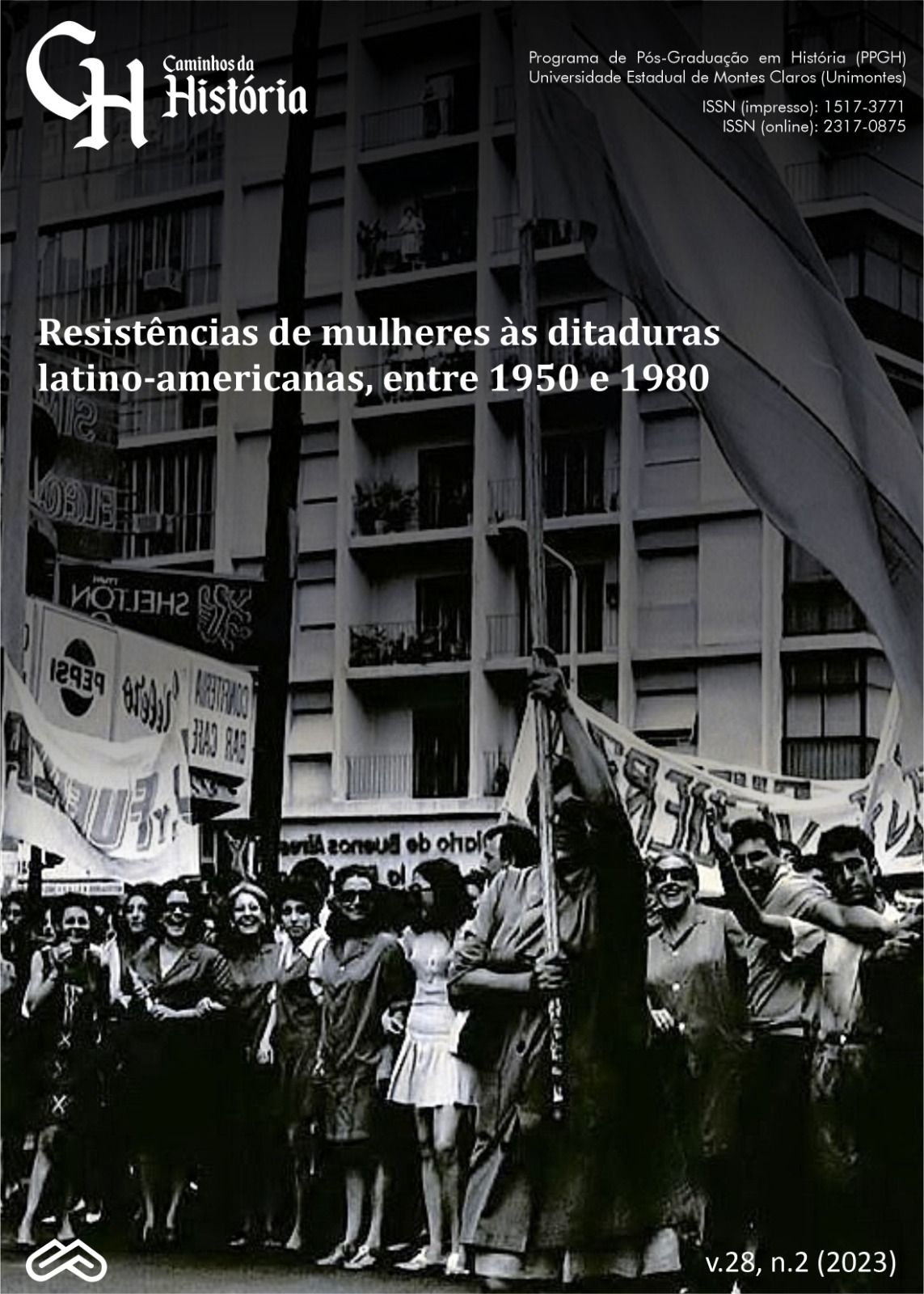Women and political participations (Brazil, 1964)
Women and political participations (Brazil, 1964)
DOI:
https://doi.org/10.46551/issn.2317-0875v28n2p.58-81Keywords:
Women’s history, Political activism, Gender studies, Resistances, BrazilAbstract
The article is the narrative of the protagonism of the militant women in the opposition to the coup and the military dictatorship implanted, since 1964, in Brazil, from diverse political initiatives, including in opposition to the actions of the militant coup, based on the Marxist approach of gender and in decolonial feminism. From the articulations between their intimate and public lives, excerpts from their biographies and insertions in leftist parties and social movements, it seeks to highlight the historical, dialectical and material relations of the intersectionality of the social-sex in the process of class struggle, understanding the history of these women active in Recife as a micro-universe interfering and revealing the national and Latin American macrostructure, within the broader movement of opposition to neocolonization policies guided by international capitalism and organized by imperialist countries. This narrative is based on the perception of the sociocultural construction of the subject revealing the political-economic structure of resistance to the state of exception, while at the same time emphasizing that the search for the psychological origins of actions in the narrated historical events is not the guiding principle of the analysis, agreeing that human complexity, dialectically observed, objectively results in history, any subjective allusion without foundation in praxis being contestable.
Downloads
References
BEZERRA, Gregório. Memórias. São Paulo: Boitempo, 2011.
BUARQUE, Chico; MILANÊS, Pablo. Canción por la unidad latino-americana. Cuba/Brasil, 1978.
COELHO, Fernando. Direita volver: o golpe de 1964 em Pernambuco. Recife: Bagaço, 2004
DREIFUSS, Renè Armand. 1964, A Conquista do Estado: ação política, poder e golpe de classe. Petrópolis-RJ: Vozes, 2006.
GALLINDO, José Felipe Rangel. O trotskismo no campo em Pernambuco: “o Jeremias das caminhadas”. Dissertação de História. Recife: UFPE, 2010.
GASPARI, Elio. A ditadura envergonhada. São Paulo: Cia. das letras, 2002.
LEAL, Murilo. A Esquerda da Esquerda: trotskistas, comunistas e populistas no Brasil contemporâneo (1952-1966). São Paulo: Paz e Terra, 2003.
PACHECO, Eliezer. A Formação da Esquerda no Brasil. Ijuí: Unijuí, 2008.
PAGE, Joseph A. A Revolução que Nunca Houve: o Nordeste do Brasil. 1955-1964. Rio de Janeiro: Record, 1972.
REIS, José Carlos. Escola dos Annales. São Paulo: Paz e Terra, 2000.





















